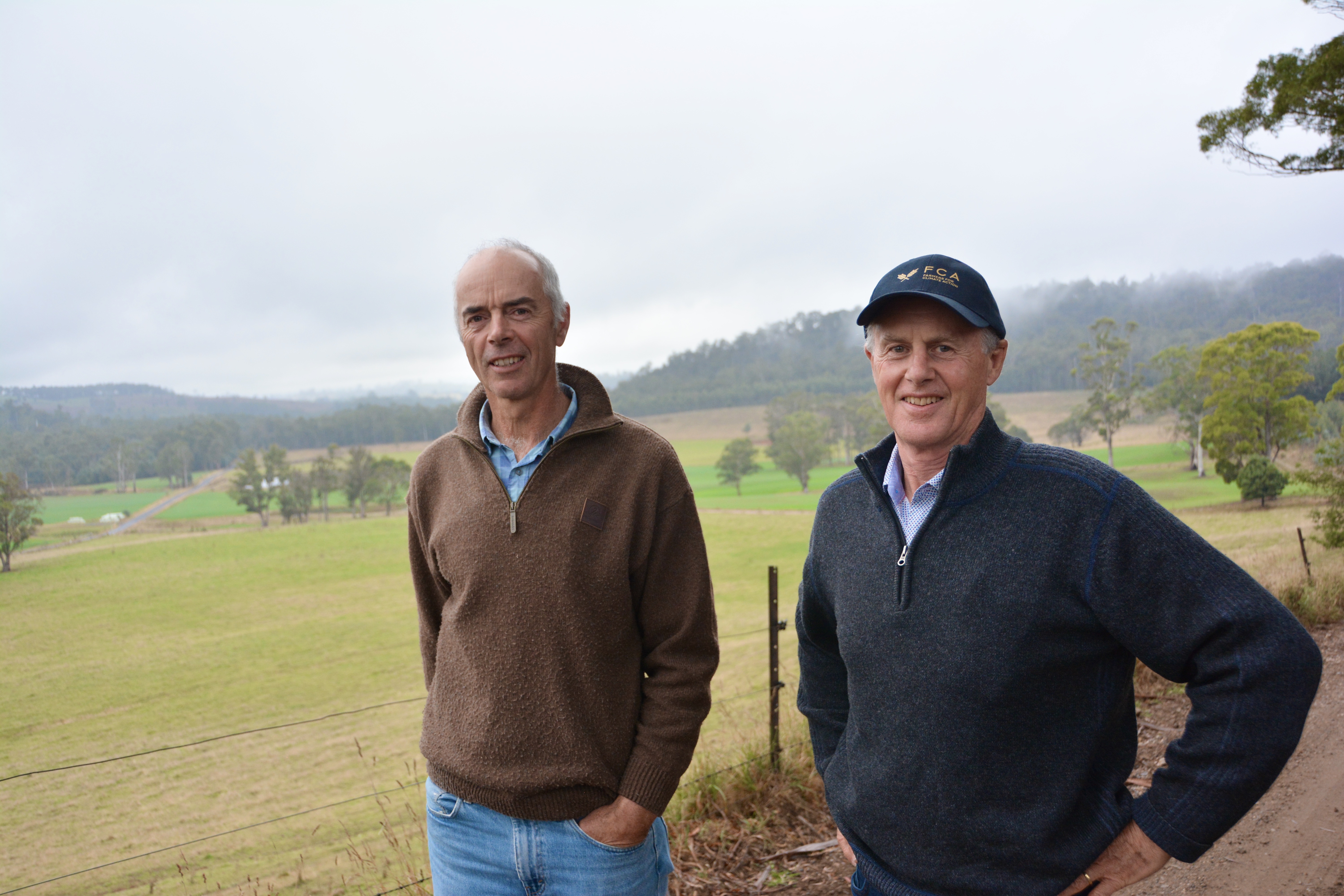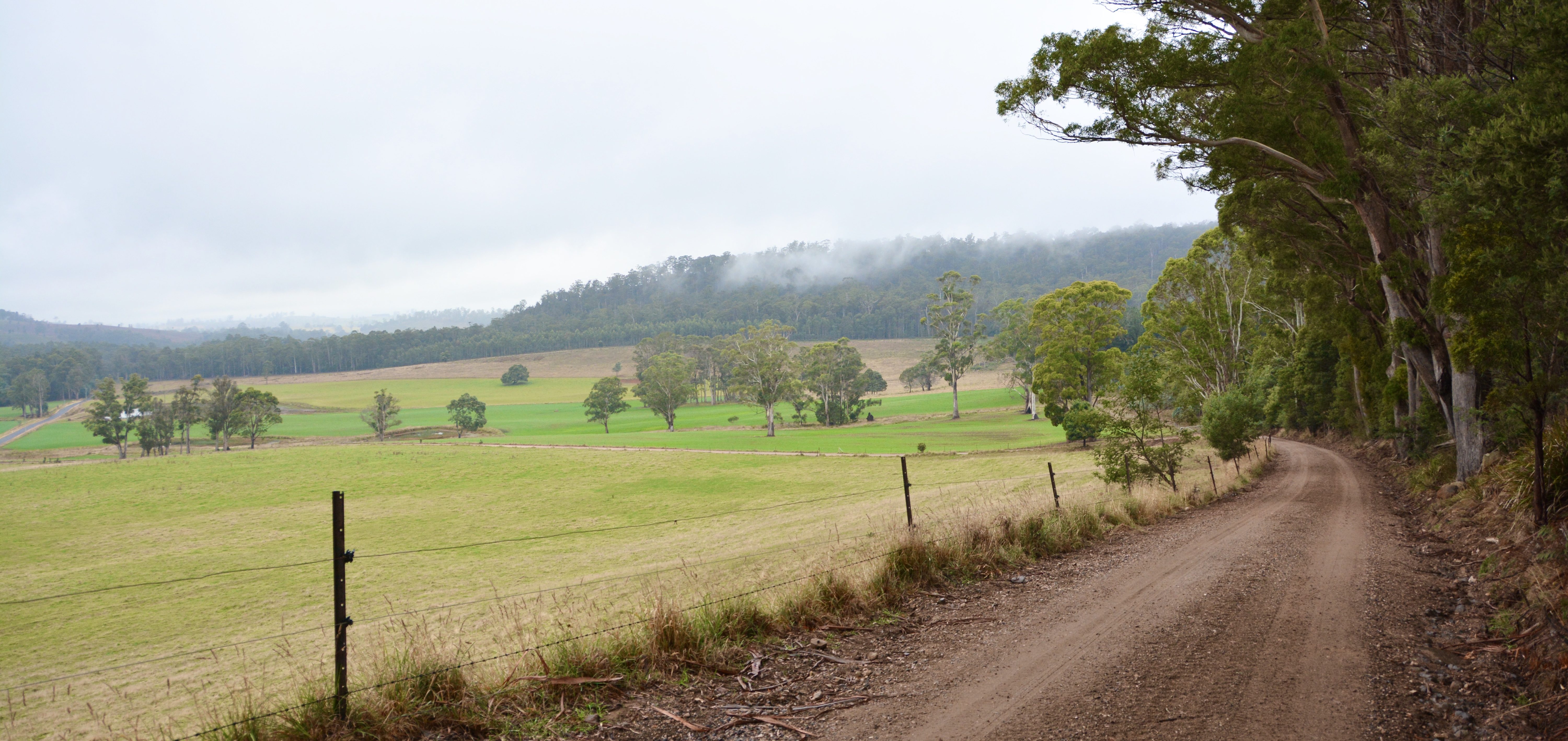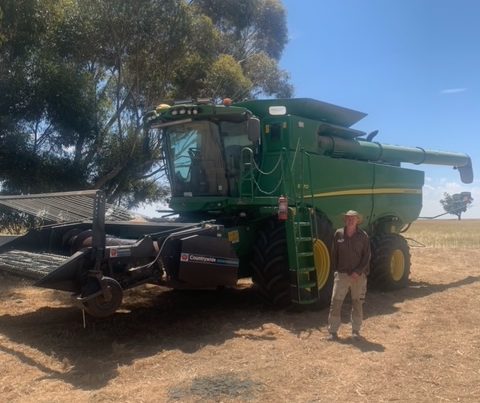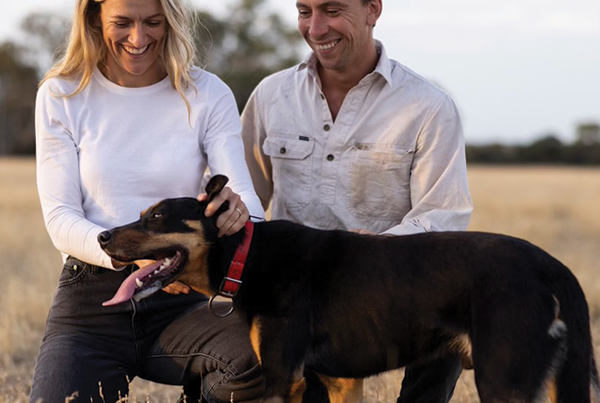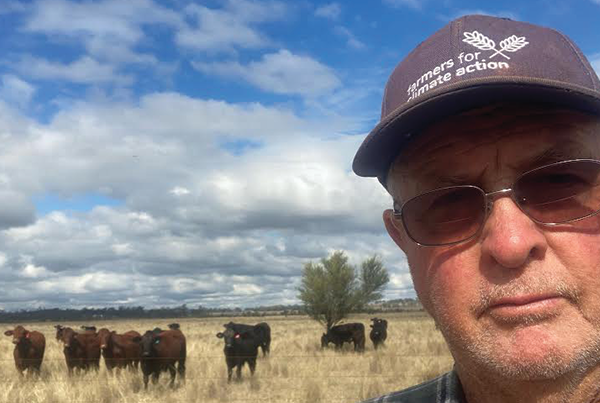At a glance
Who: Rob and Sally McCreath
What: 220ha breeding and fattening angus and shorthorn cattle for premium grassfed markets
Where: Deloraine, Northern Tasmania
Can you tell us about your property?
We came here 4 years ago, having sold our farm in southern Queensland, where we’d been growing crops and running beef cattle for 23 years. Before that we were dairy farmers in Scotland.
Rainfall here averages around 1000mm per annum. This is a former dairy farm, which grew plantation bluegums before we came. We are establishing long term pastures of ryegrass, cocksfoot and white & red clover, which we graze on a rotational basis according to leaf stage. The rotation period typically varies from 21 days during peak spring growth to 75 days in the frosty winter months. Our aim is to efficiently convert pasture into top quality beef, while improving the land and enhancing environmental attributes.
What first got you thinking about climate change?
When British PM Margaret Thatcher started talking about it in the 1980s.
Has climate change impacted on your farm business?
It persuaded us to sell up in Queensland and move as far south as possible. Water availability is the limiting factor for most Australian agricultural production, and as temperatures increase, water availability declines. Climate projections for the future predict that it will be increasingly difficult to farm in large parts of Australia. Many areas that have always been considered ‘safe’ will become marginal, and marginal areas may become uninhabitable.
What are some of the climate-smart strategies you’ve been employing and how successful have they been?
We fought a coal mine and petrochemical plant for four and a half years when we were in Queensland, as members of the community group Friends of Felton. We won, so that was a very successful climate-smart strategy. On this farm we’re locking up carbon by planting trees and growing productive long term pasture.
Do you use renewable energy on your farm? What are the benefits?
The obvious benefit of renewable energy is that it doesn’t cook the planet like the alternatives. Tasmanian electricity comes from hydro generation, so the decision to install our own generation is an economic one. We haven’t done so yet, as we don’t use a lot of electricity.
